First Light
Jensen turned over his hole card, the ace of stars, and the table erupted in a splatter of shrapnel. I jumped back, and the cards flew as the air shrieked in our ears.
“Breached,” somebody screamed, probably Stromberg. What else could it be, you idiot, I wanted to shout. Drops of blood mixed with the whirlwind. Razor, the mate, started shoving us toward the hatch.
“Move,” he yelled. The ship comes first, of course, and Jensen and his gaping chest would wait. Armond, the only tech on our watch, moved toward Jensen, flailing beside the wrecked table. Razor yanked him by the belt and hauled him through the hatch. He hustled us to our action station, deep within the ship, through locks until the air stopped screaming. Any thoughts of safety evaporated like ice on the sun when the drive shut down and we grabbed for freefall handholds. We all knew what to do now — even on a scow like Icarus, everyone wants to save their own skin.
We pulled on p-suits and plunged into the damaged core, the backbone of our ship. Razor paired me with Armond to carry his tools — I didn’t argue, we needed plumbers not pilots. Armond led me through the ring sections of the core, that slackness in his expression I had seen at the card table gone. I followed blindly, and Armond grabbed tools out of my hands as he worked. We floated weightless in clouds of gas and jets of liquid nitrogen, and I anchored Armond while he patched the cyro lines. He pointed toward the next ring section.
“There,” he said.
Radiation alarms flashed on the bulkhead. I tasted cold sweat and stale air in my suit. Armond looked at me, and his eyes narrowed. “The suit should protect you,” he said, and kicked off. I gathered the tools and followed. He waited for me at the next section, arms and legs hooked around a strut. He peered into the reactor compartment, eyes straight ahead, with the best poker face I had ever seen on this ship.
“You stay here,” he said finally, “you might damage something in there.” I could barely hear his voice, and didn’t try to argue. He reached for the toolkit and then floated in with a graceful jump, disappearing amidst the machinery. I waited for him, and wondered if I should call Razor. It felt like hours later when the radiation alarms cycled from red to yellow to gray.
“Come on through,” he said over the com, “we have to go deeper.”
* * *
Our watch reassembled later, after Armond ran out of things to fix. The danger had passed. The bridge crew came aft, their uniforms clean inside lightweight vac suits, dull membranes of transparent plastic. The captain panned her head around the compartment, dark lenses peering into every corner. I hadn’t seen her this close before. She looked right at me, the utter blackness of her glasses seeming to absorb all the light around. The only leadsman in the Fleet with captain’s bars, instead of spending all her time in the dome.
And her ship looked for tree hugger worlds, leaving the rest of the Fleet to the scut work of moving humanity from planet to planet. I had transferred to Icarus to leave behind my debts, and the officers who bet more than they could afford to lose.
Razor reported to the captain, and came back with new orders. Pair up and search the rest of the ship for wounded.
“What hit us?” Stromberg asked, his voice strained.
“Oldest trick in the book,” Razor said. “A black body sneaked up and launched high KE slugs. Captain figures we got holed by at least a hundred of them.”
“Tree huggers?”
“Yeah,” Razor said. He looked over his shoulder at the captain. “She can taste stuff like this. She knows where to go.”
Armond and I floated aft, checking compartments. The dead we found had holes blasted through them, like Jensen. Anyone just wounded had probably made it to sick bay without our help. Armond moved awkwardly now, missing handholds as we pulled ourselves along. He looked old again, or exhausted. I only knew him from the card table.
“I’ve had enough,” I said, and undogged my helmet. The air tasted foul, even with the blood drops filtered out. Armond strapped himself to the floor, and his hands shook as he undid his helmet.
“You OK?”
He nodded. We sat there, unwilling to finish our search. The dead would wait. Moments later the hum of the drive started, and gravity returned. Armond’s face drained of blood as it sagged.
“I guess we weren’t hit too badly,” I said.
“Green science repairs itself,” he whispered, like a refrain. The tree huggers didn’t leave much behind except for green science. Smart plants, organic computers, whatever you wanted to call it. The Fleet wanted it, and paid bonuses for it. Icarus made a good posting, if you had a stake to build.
“The captain will lead us right to more of this stuff,” I said.
“The captain doesn’t care the science. She wants to find first light.”
“Why would a blind woman care look for light?”
“She can see, but not the way we do.”
“I heard the eyes come out and those glasses go on.”
Armond leaned back. “Only a leadsman knows.”
I tried to stay away from leadsmen. Those dark panes on the face in place of eyes bothered me. Those penetrating glances made you feel naked, even wearing a p-suit and a coverall. But no ship could navigate the dark ocean without someone to look into the dark ocean and plot the currents and eddies of dark matter that our Fleet ships traveled.
I never got a chance to ask about first light again. Razor found us and detailed us to drag the dead to sickbay. We cursed the gravity the whole time.
* * *
We worked double watches repairing the damage. I checked out my shuttle and the other launches. With that done, Razor gave me eighteen hours of unskilled and thankless tasks, making me wish I had found busy work on the flight deck.
We played cards on Jensen’s bunk instead of sleeping when the bridge crew let us stand down.
“You pilots have an easy life. Damn tanks fly everything,” Razor said. He talked too much when he had lousy cards.
Razor didn’t know the half of it. True, the tanks of tree hugger plant computers could fly a shuttle better than I could, but you had to know where to point it. I dealt out another card. Stromberg had a look of hope on his face, but he wouldn’t catch that inside straight. I kept my mind on the game.
Razor checked. I wanted to keep his mind off the game. “When do we get some shore leave,” I said.
No one said anything. Not even when I flipped another ace to Razor.
“We won’t go back,” Razor said. “Not ’till we find something. The captain’ll keep going.”
I put the deck down. “Looking for first light?”
“What did Armond say?” He looked over his shoulder at the row of empty bunks behind him. The old tech hadn’t come off watch yet. “Well, that guy can get crazy sometimes. Crazy like religion and hellfire.” He threw his cards on the blanket and walked away. “We all go crazy on this ship.”
I found out what Razor meant. We pushed on, following the captain’s nose as she took us into a dozen systems in the star cluster. Searching. That black body came from somewhere. After a month of double shifts, I couldn’t even find anyone to play double-up. Relief came when the captain spotted another black body. We melted it into slag with an x-ray laser before it launched. The captain turned Icarus and followed its trajectory to a system, sparkling on with tree hugger traces, the bridge crew said.
Icarus would stay in the comet cloud. The captain took the cutter, our biggest launch, and headed for the blue green world right in the middle of the tree hugger habitable zone. One watch stayed on Icarus, and I took my small shuttle to the gas giant on the far side of the system. We had few men, and I wouldn’t take any walking wounded, so I took Armond for crew. I would have preferred a few marines, but they all went with the captain.
I tried to pick a course as best I could, but the dark currents run thin in the deep gravity wells near a star. Not that I could even see them — only a leadsman can — but I could tell when the ship moved faster and I tried to follow the flow blind, seeking back and forth for the deep pockets. Armond had nothing to do and spent his time tinkering with the green science onboard, as if to prepare himself. I trusted it enough to run the ship while I slept, but no further. The tank behind me on the command deck leaked light from its corners. Inside, tiny plants grew and computed, floating in a liquid broth of multidimensional processing and lit with just the right spectrum. Techs had tried to build organic machines once they reached the limits of carbon and silicon. Then a Fleet ship found a tree hugger world, the first of many. All empty, but scattered with pieces of technology. Strange aluminum alloys, transparent plastics durable enough for vac suits, and plant computers. Mostly running wild on blue-green worlds, or bound inside geodesic dome greenhouses.
Another dull watch started when I asked Armond what first light meant.
“Depends,” Armond said, kneeling by the tank. Damned if he didn’t check that thing five times a day.
I looked at him. He had become an old man again; even the light duty had not restored him. “On what?”
“For a scientist, it solves the ultimate equation. For a philosopher, it answers the ultimate question.”
The jovian angled into view. I abandoned the dark currents and plotted us in through real space. “So everybody wants it?”
Armond sat in the co-pilot’s seat. “No one knows if it even exists. Just rumors, legends, guesses. Do you know that some of the Chlorophile use plants for data storage?”
I never thought about the tech stuff. I only cared about what made a ship move faster and more efficient. Armond continued. “Techs found some records that suggest that the Chlorophiles had a limited form of time travel. And they used this to capture a sample of the wave front of the big bang.”
The tree huggers died off a million years ago. Or the Chlorophiles, as Armond called them. He sounded more like a scientist than a tech. But time travel? Going back to the big bang? “What could you do with light?”
“Just think of it!” Armond’s face lit up. “The moment of creation captured, like a glowbug in a bottle.” He turned to the console and frowned at the Jovian, like his mind tacked against a dark current. “Scientists could take this information and reconcile the unifying theorems for light and dark matter, using the data as an initial condition.”
I knew how to fly from place to place in real space, and could try to fly through dark currents as best I could. The rest I left to the techs and scientists. “Why reconcile? Both work.”
“They work, but we only know one possible solution for each, just one of many possible solutions. With a sample of first light, you can obtain all solutions.”
“Fine,” I said. “Why do the scientists want it so badly?”
“Do you know how dark matter works? How it interacts with normal space time? You know enough. But with first light, you can figure out how it works exactly. Change all the theorems to laws.”
Theorems into laws. Great stuff if someone paid for it.
The console flashed for my attention. Takes a little green science to find green science.
“What do you see?” Armond asked.
The tank detected a satellite in orbit around one of the Jovian moons. Radiating waste heat like a small sun. Something on that moon used power. A lot of it. I could almost feel that bonus. No one had ever found a working tree hugger mechanical artifact.
* * *
I did one orbit around the gas giant then hohmann’d in to the moon’s orbit, just on the edge of the magnetosphere that blasted our comms with static. We had spent the last week looking at the moon, all rock except for a scattering of frozen nitrogen slush. The satellite, a huge flower of panels and tethers parked in geosynchronous orbit, converted sunlight and the Jovian’s magnetic field to microwaves and beamed it straight down.
Armond wanted to go to the satellite first, but I wanted to see where that power went. My ship, my rules. Something burned six hundred kilowatts a second down there, and I didn’t need to see the power station. I brought the ship down manually, with Armond running the ground scan, making sure we didn’t cross the microwave beam if it wandered. Armond looked like squid waiting at the airlock for his first shore leave.
We could spot nothing on the surface but flat black panels of the receiving dish, covering the floor and walls of a crater, seven klicks wide. I set down at the rim, gear cracking a thin crust of methane. Armond rushed to the air lock before I got out of my chair. I shut down the ship’s systems and synced the mote. Armond had all the tech knowledge, I supplied the dumb muscle now.
The crater looked just like the fragments of the black body we had destroyed, deep black, capable of absorbing all wavelengths. It reminded me of the captain’s glasses, and a shiver ran up my spine, not from the slush we stood in.
“Well,” I said, “Do you see a way in?”
Armond put his binoculars down and pointed. I could just make out a dull pillbox on the rim. Armond started toward it, and I hoisted my pack and followed.
“I see radar echoes,” Armond said. “That means cavities under us.”
Filled with green science, I hoped. Finding a new strain of plant computer that hadn’t devolved would mean a bonus so big I wouldn’t mind sharing it with the rest of the crew.
“Can we get in?” I asked after Armond stood in front of the pillbox for a long moment.
Armond didn’t answer, but took a box from his belt, leaking light from its corners. I had never seen a tank that small, but techs always had gadgets like that. Armond fitted it into a notch on the wall that I could hardly see, and a side of the pillbox swung upward. Armond stepped inside into the darkness before I could stop him. I sent a message to the shuttle through the mote. Static from the Jovian made the link ratty with interference. I stepped in, elbow to elbow with Armond, half bent over.
“I guess the tree huggers didn’t grow big,” I said.
The door slid shut, and I imagined air — some type of air, rushing in. A dim glow came from the ceiling. Armond’s eyes fluttered open, and he found another slot for his tank. I felt a gentle acceleration downward, and I leaned on the wall.
“Down and in,” Armond said.
“That easy?” I didn’t like that. I had imagined blowing our way in and scavenging in the hard vacuum.
“Anybody can open a door,” he said.
I felt a vibration running up my legs, and the acceleration stopped with a jolt. Half a million years, and the machinery still worked.
“Now what?”
Before Armond could answer, the wall slipped open and light flooded in. My visor opaqued, then adjusted. A long corridor stretched out before us, floors and walls covered with thick hanging greenery, reflecting an odd shade of blue-green. Lighting panels in the ceiling burned brightly, though my suit detected cool air. Green science grew in tanks, for all I knew. I had never seen this before.
Armond undogged his helmet.
“Wait,” I said.
Armond held up his tank. “A little high in nitrogen, but good.”
He sniffed the air once he had his helmet off, shading his eyes.
I took mine off. People lived on tree hugger worlds, after all. The light blinded, and the air hung heavy with humidity. I could almost taste a mist in the air. Armond fingered the plants with his gloved hand, turning leaves over, poking deep.
“Do you recognize those?” I asked.
He held up his tank. “A bigger version of this,” he said, “much bigger. And rooting! I’ve never seen Chlorophile plants root. They wither without the tanks.”
I could taste that bonus. The corridor stretched out in front of us. “Let’s see the rest.”
* * *
Armond sat and leaned heavily against the wall. He pushed the plants out of the way gently, as if his touch would wilt them. We had found nothing but corridors and plants. They grew heavily in some areas, sparsely in others, all sprouting from niches in the wall. The corridors formed a square, half a klick on a side, with the elevator shaft in one corner. Nothing but plants, lights and halls. Too much light. No machinery visible. We had searched the whole day, and now rested in a clear spot. We piled our gear and made camp in the middle of a corridor.
“Did you get a complete radar image?” I asked. We might have to do some blasting after all.
“Something in the center, I think.” He held up his tank. “And machinery under us — air plants and pumps.”
I put my head to the floor. Something good enough to keep the air fresh for millions of years. I checked the shuttle through the mote then went to sleep, feeling safe that the air should last a few more hours.
I woke, alone. I walked down the corridor until I found him. He had strings of plants pulled back, exposing the inner wall. He had cutting tools out, scanners, and test equipment scattered around the floor.
“In here,” he said.
“What?”
“A light chamber,” he whispered. He thrust a datapad at me, with a sketch of the corridors we had mapped yesterday. A square sat inside the corridors, and as I rotated the sketch I saw chambers underneath, with blocky outlines of machinery. Armond rubbed his eyes. He looked like he hadn’t slept at all.
I liked the possibility of a working light chamber. Everything else here worked. Could the tree huggers had saved first light? But I didn’t like the idea of having Armond monkeying around with this stuff when better techs went with the captain. I told him not to do anything until I talked to the captain. The mote flickered on and I tried to get a signal out. Nothing. Not even static.
“Do you think something happened topside?” Armond asked. I shrugged, and fingered a spade-like leaf.
“Don’t touch! I haven’t checked them all.”
“I’d better get back to the ship.”
Armond turned to me, the light drawing dark shadows under his eyes. “I forgot to tell you. The elevator won’t work. I haven’t had a chance to look at it.”
I looked at it myself. Not that I could fix anything, but just to see. I wouldn’t even know how to close the door without a tank. The captain would come looking for us eventually, if she didn’t find herself trapped in an ancient tree hugger greenhouse too. I went back. Armond continued to work, probing for radar echoes, like he could finish his watch and go back to the shuttle at any time.
“What will the captain do?”
Armond looked around, and ran his fingers gently through the leaves. “She’ll cart it all away and dig up every last trace of the Chlorophiles.”
“Would you rather leave it all here?”
“It got along fine without us,” he said.
Armond didn’t scare me until then. He had all the gadgets and the know how to fix stuff, but technology had a grip on him. The way he touched the plants, his obsessive care of the tanks, even the way he spoke of the tree huggers. A good card player knows the odds in a game, but a better one knows the players.
“The captain has our position and will come. Don’t muck around with anything except the elevator.” I hated to pull rank, what little I had. I had seen Armond’s eyes glaze over when he had entered that radiation filled compartment, I didn’t want to see it again.
* * *
The sound woke me. Explosions are never good to hear, not in space or on the ground. I jumped up and ran. Before I rounded the first corner, air whistled in my ears, popping my eardrums like a hull breach. I saw a silhouette ahead, standing in a clear spot of corridor. Loose leaves whipped around my face, and metal shards of the walls skittered across the floor. Armond stood in front of a door to the light chamber, exposed now with the wall blown away. He held his tank against the door, muttering.
“What the hell are you doing?”
He didn’t look up. “First light. I read it in the plants. They really did capture it.” His voice leveled. “Trapped in a vacuum, of course. Super-reflecting mirrors at the corners, I detected the interference pattern.”
“Close it!”
The dust and debris slowly began to settle, leaving only a ringing in my ears. “Too late,” he said. “The light will fade now.”
He fiddled with the tank. The door edged open, bright orange light leaking out. I couldn’t look in. So bright it hurt my eyes with my head turned.
“Close it, damn it!” I yelled.
Armond looked at me, and I recognized the look on his face. He stripped off his coverall, and I saw gray hairs on his chest char into smoke.
“The moment of creation,” he said, his body translucent in the light. He stepped inside. I don’t know if he screamed, I ran down the hall to get away from the light.
* * *
The captain’s tech had no trouble getting in five days later. The blisters on my face had just started to pop. The horrible light had left days ago, and I didn’t look until the captain dragged me over to the door. A charred pile of flesh lay inside, and it looked like Armond had knelt in the path of the light, arms upraised. In worship or ecstasy.
The captain’s eyes panned back and forth, as if a scintilla of light remained for her to see.
“He said nothing? Did he take any recordings?”
“Nothing,” I said. I had it in my grasp, and let that crazy old tech destroy it. For what? So he could burn in it? The captain’s crew stood around, cramped in the corridor. The plants had exploded in a riot of growth, hanging down the walls in waves of blue-green. The captain turned to go.
“Wait. He did say something. He said the plants had data on them.”
The captain’s tech fingered a leaf and put it under his tank. “Something different here,” he ventured, then held it toward her.
The captain looked, then turned toward me with her bottomless eyes. All hope of returning to the Fleet left me.
“We’ve found a map,” she said.
The End
Although Patrick Lundrigan doesn’t remember it, the first spacewalk took place on the day Pat was born. Since then, he’s tried to keep up with space exploration, culminating with watching Atlantis lift off for the final servicing mission to the Hubble Space Telescope. He’s been writing since 2001, and his story, “Space Hero” won the Grand Prize in the 2010 Jim Baen Memorial Writing Contest. His stories have appeared in Writers of the Future Volume 24, Space and Time and Flash Fiction Online.

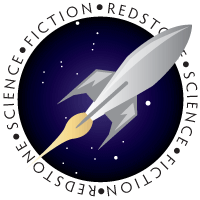
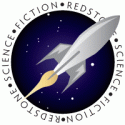



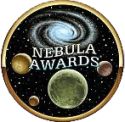
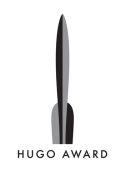
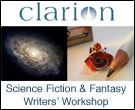



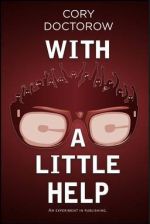
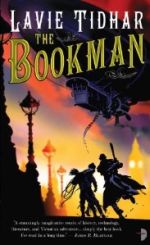
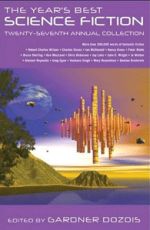


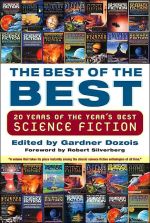
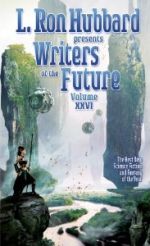

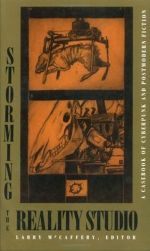



6 comments
[…] First Light by Patrick Lundrigan […]
[…] better. It is simply more fun than human being should be allowed to have. In our second story, First Light, Patrick Lundrigan taps into what many of us are looking for when we read science fiction: space […]
Excellent, Pat!
Please send a couple of your stories so I can put them up on my website’s “My Story” page.
[…] story in RSF this month, First Light, has the feel of space exploration that has been ‘lived in’. What inspired you to write […]
[…] “First Light” by Patrick Lundrigan at Redstone Science […]
[…] Fiction The Hubbard Continuum by Lavie Tidhar Perfection by Jay Garmon Brittlestar by Mike Barretta First Light by Patrick Lundrigan Time’s Arrow by J. […]